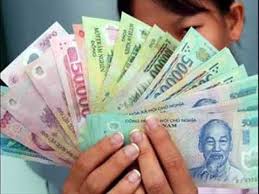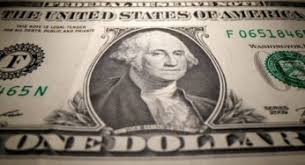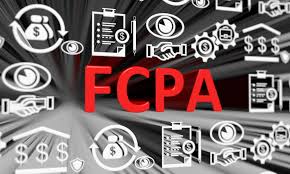Novartis and Alcon: A Review of Bribery and Accounting Violations (Part II of III)

Novartis and Alcon engaged in separate but significant bribery schemes. Considering the fact that Novartis had a similar violation in 2016 in China involving much of the same conduct, Novartis’ conduct reflects a weak corporate culture of compliance.
Novartis’ conduct is all the more troubling given its enforcement record on domestic False Claims Act and anti-kickback prosecutions. Novartis has real compliance and culture problems, apparently in its domestic as well as its international operations. Whether Novartis has made real and significant changes to its culture will be evident over the next few years.
Novartis Greece
Between 2012 and 2015, Novartis Greece bribed health care professionals at state-owned and state-controlled hospitals and clinics in Greece. Novartis paid for employees at these state-owned medical facilities to travel to international medical congresses, including events held in the United States in order to bribe these officials to increase the number of prescriptions they wrote for Lucentis, a prescription drug, which is used to treat macular degeneration.
The medical congresses were organized by various medical associations in the United States and Europe. In sponsoring public healthcare professionals to attend these congresses, Novartis paid the costs for attendance, including airfare, hotel accommodations and registration fees. The cost per individual healthcare professional was approximately $6000.
Novartis policies required that the purpose for sending healthcare professionals to congresses was to provide scientific or educational information. Novartis sales employees, however, paid for Greek healthcare professionals to attend international congresses to induce healthcare professionals to increase prescriptions for Lucentis.

Novartis identified relevant healthcare professionals based on their individual propensity to prescribe Lucentis, and then “invested” in them by sponsoring them to attend international congresses. Physicians with a lower potential would not receive any “investments.”
Novartis corrupt intent was documented. As an example, on September 27, 2012, the Lucentis Brand Team met to discuss sales strategy in Greece. The minutes of the meeting included a specific reference to “Increase Pressure in HCPs,” and indicated that Greek healthcare professionals “must understand that their participation in [specific congresses in the United States and Europe] will be cancelled if sales performance is not improved significantly.” Conversely, the minutes indicated it would withdraw sponsorships based on poor Lucentis sales performance and will discuss this strategy with Novartis sales representatives.
In January 2013, Novartis employees reviewed a presentation entitled “Action Plan KOLs,” referring to target Key Opinion Leaders, including HCPs in Greece. The strategy referenced using certain “actions,” including sponsorship to United States congresses (“tak[ing advantage of [the U.S. Academy’s congresses”) to induce Greek physicians to prescribe Lucentis. As the Action plan stated “to get you must write. No presents anymore.”

In a strategy document, Novartis Greece recognized that one of its competitors was sponsoring healthcare professionals to attend United States and Europe congresses. To respond to the competition, Novartis adopted a strategy to send approximately 10 physicians to congresses in Europe (10 congresses per year) and the United States (4 congresses per year).
Between 2009 and 2010, Novartis Greece made illegal payments to healthcare providers in relation to an epidemiological study focused on blood pressure patient data as a means to increase sales of Novartis blood pressure medication. Novartis paid healthcare professionals to gather data for this study and submit information needed to assess. These payments, however, were made without regard to whether the healthcare professional provided the information and completed necessary forms as directed by Novartis. Many of the physicians who received the payments believed that they were being paid to increase the number of prescriptions they wrote for Novartis not for providing data as part of a clinical study.
Novartis Greece employees falsely recorded all of the above-described payments related to the international medical congresses and the epidemiological study. Novartis Greece earned a profit of approximately $71 million from these illegal activities.
Alcon Vietnam

Between 2011 and 2014, Alcon bribed employees at state-owned hospitals and clinics in Vietnam with the assistance of a third-party distributor. Alcon did not sell its products directly to Vietnam state-owned hospitals and clinics. Instead, Alcon relied on a third-party distributor sell its products to state-owned hospitals and clinics. The distributor’s business was focused on surgical and intraocular lenses, which are artificial replacement lenses implanted in the eye to treat ailments such as cataracts.
Starting in 2007, Alcon and the distributor bribed healthcare professionals to increase the use of intraocular lenses. The bribery scheme was carried out with the knowledge of senior level executives in Singapore and Vietnam. A total of 35 healthcare professionals (doctors and nurses) were identified for bribery payments. The bribery payments were calculated based on a flat-fee per item ordered.
Under the guise of a “consulting” program, Alcon and the distributor made bribery payments to healthcare professionals to induce increased sales of intraocular lenses. Alcon employees in Vietnam reimbursed the distributor for up to 50 percent of the corrupt payments by false expenses attributed to consulting, marketing and human resource expenses. Alcon paid the reimbursement by credit notes to the distributor’s accounts.
In a July 21, 2008 document, the bribery scheme was targeted to influence doctors and nurses — “[d]octor[s] in the consulta[tion] room,” “[d]octor[s] in the exam room,” “[n]urse[s] in the consulta[tion] room,” and the “[c]hief[s] of [Operating Rooms] in” two specific eye hospitals in Vietnam.
At its peak in 2011, Alcon paid approximately 200 healthcare professionals under the consultancy program.
The scheme continued after Novartis acquired Alcon in 2011. Alcon earned over $8 million in profits as a result of the bribery scheme.
Novartis South Korea

As part of the SEC settlement, Novartis also agreed to improper conduct in South Korea and China.
Between 2011 and August 2016, Novartis Korea employees made corrupt payments to healthcare professionals to increase prescriptions and sales of Novartis products. One scheme to make improper payments was disguised as payments made for purported medical journal activities arranged by a third-party vendor. HCPs were paid to participate in roundtable meetings organized by a medical journal. HCPS were paid honoraria ranging from $268 to $447 per event, and the amount of fees paid to HCPs averaged $2250 per journal.
Novartis Korea paid the medical journals over $16.2 million between 2011 and 2015, some of which was passed on to HCPs as honoraria. In 2017, Korean regulators imposed an administrative fine for these activities totaling approximately $50.3 million and suspended Novartis activities for 3 to 6 months.
In another scheme, Novartis Korea sales managers and employees paid sponsorships of HCPs to international medical conferences. Between 2011 and August 2016, Novartis Korea provided funding for 2032 HCPs to attend 381 international conferences at a cost of $7 million. Of those conferences, 645 HCPs attended 112 conferences in the United States at a cost of approximately $2.5 million. Novartis Korea falsely recorded the improper payments on its books and records.
In yet another scheme, Novartis Korea employees in neuroscience business unit devised a local non-interventional clinical study with 17 pre-selected HCPs to influence the HCPs. The study was organized in May 2013 through a local medical journal with Novartis Korea providing the list of HCPs to participate. Novartis falsely reported the expenses as advertising.
Novartis China

In 2011, Novartis acquired Alcon. From 2013 to 2015, Alcon placed surgical equipment at hospitals or clinics for no or little money down in exchange for contractual assurances that those hospitals or clinics would either pay for the equipment or finance it over several years through payments associated with the purchase of Alcon intraocular products. This business practice was in place when Novartis acquired Alcon and used .facilitate long-term relationships with its customers.
Starting in 2013, Alcon called this agreements “equipment financing arrangements” (“EFAs”). Certain managers used aggressive sales techniques and at times falsified documents in order to enter into these EFAs. Novartis started accounting for Alcon’s EFAS as finance leases or sales, recognizing revenue up front at the time of placement. Novartis’ accounting controls were inadequate to ensure appropriate accounting treatment of the EFAs.
In late 2015, a new management team of Alcon conducted a comprehensive review of equipment placed in hospitals and clinics and associated contractual documentation. The on-site check was completed in the summer of 2016 and confirmed that 844 pieces of equipment had been placed pursuant to 466 contracts that were identified with control deficiencies including lack of formal signatures, some pieces of equipment were not located and some equipment was obtained through forged or false contracts. Alcon’s EFA program was repeatedly cited for control deficiencies and efforts to remediate the program were never successful.















